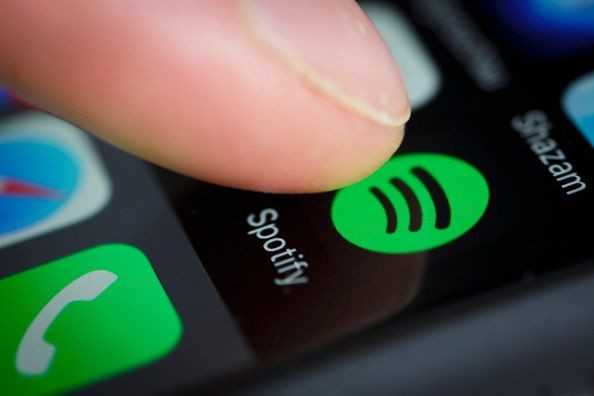Spotify’s Unpaid Royalties Settlement Called ‘No Real Punishment’ By Songwriter Advocates

From the day it first launched in the United States, Spotify admitted it had a royalty problem. On Thursday night, the National Music Publishers Association announced it had cut a deal to solve it — one that would see Spotify finally begin to pay out royalties for billions of streams that have occurred on its service since it launched in the U.S. in 2011, and one that could serve as a template for dealing with similar situations on other streaming services.
But some people are not happy with the arrangement at all. “The NMPA settlement doesn't solve any of the problems,” said Jeff Price, the CEO of Audiam, a company that helps songwriters claim royalties they’re owed from digital streams of their songs across the internet. “Ninety-five percent of the world's publishers are not members of the NMPA.”
Under the deal, Spotify will distribute $5 million, as a gesture of good will, to publishers who have opted in based on their market share. Those same publishers will be able to claim royalties they're owed using Spotify's data about the songs that have played on its service, then associate themselves with those sound recordings to ensure they are paid when those songs are streamed in the future.
That arrangement will essentially transfer the responsibility Spotify had to identify a composition's rightholders and enter into a licensing agreement with them before using their songs. Spotify, along with the rest of the streaming services, outsourced some or all of that work to third parties ahead of their launches, resulting in a situation that persisted for years where as much as 25 percent of all the streams on these services were not paying out the required royalties.
“They're doing [Spotify’s] work for them,” Terrence A. Oved, managing partner at Oved & Oved LLP, said of the opted-in publishers. “They're not averse to doing that work because it results in them getting paid, but that is not their responsibility.”
To Price, this deal sets an unwelcome precedent. "It sends a message to other existing and future services that they can just take music with no license to achieve their business goals, and if they get caught, there is no real punishment," he said.
Publishers who do not opt in will have their unclaimed royalties liquidated and distributed to those who did. If a publisher ultimately decides to opt in after its initial royalties have been distributed to the deal's other participants, Spotify will still have to come up with the money to pay them what they're owed. "They're going to have to pay twice," NMPA President David Israelite told International Business Times. "If a publisher doesn't opt in [right away], their rights are not affected."
Some industry observers find this deal unpalatable because Spotify has been infringing on songwriters' copyrights for years, and they feel the company deserves to be punished. In December, David Lowery filed a $150 million lawsuit against the service, alleging copyright infringement; days later, Melissa Ferrick, an award-winning folk singer, filed a $200 million suit of the same type.
Both of them are seeking class-action certification, which Spotify’s lawyers have moved in court to strike down. How that motion shakes out could have an effect on a number of independent publishers who are sitting on the sidelines, waiting to figure out how to respond to Thursday’s settlement. If a class-action certification is ruled out, leaving Ferrick and Lowery fighting against Spotify one-on-one, that could drive more people to opt in.
"Very few of these people can afford to mount this kind of suit," Oved said. "Looking at it from a business point of view, it may not be the maximum they could receive, but now they have certainty."
© Copyright IBTimes 2025. All rights reserved.





















